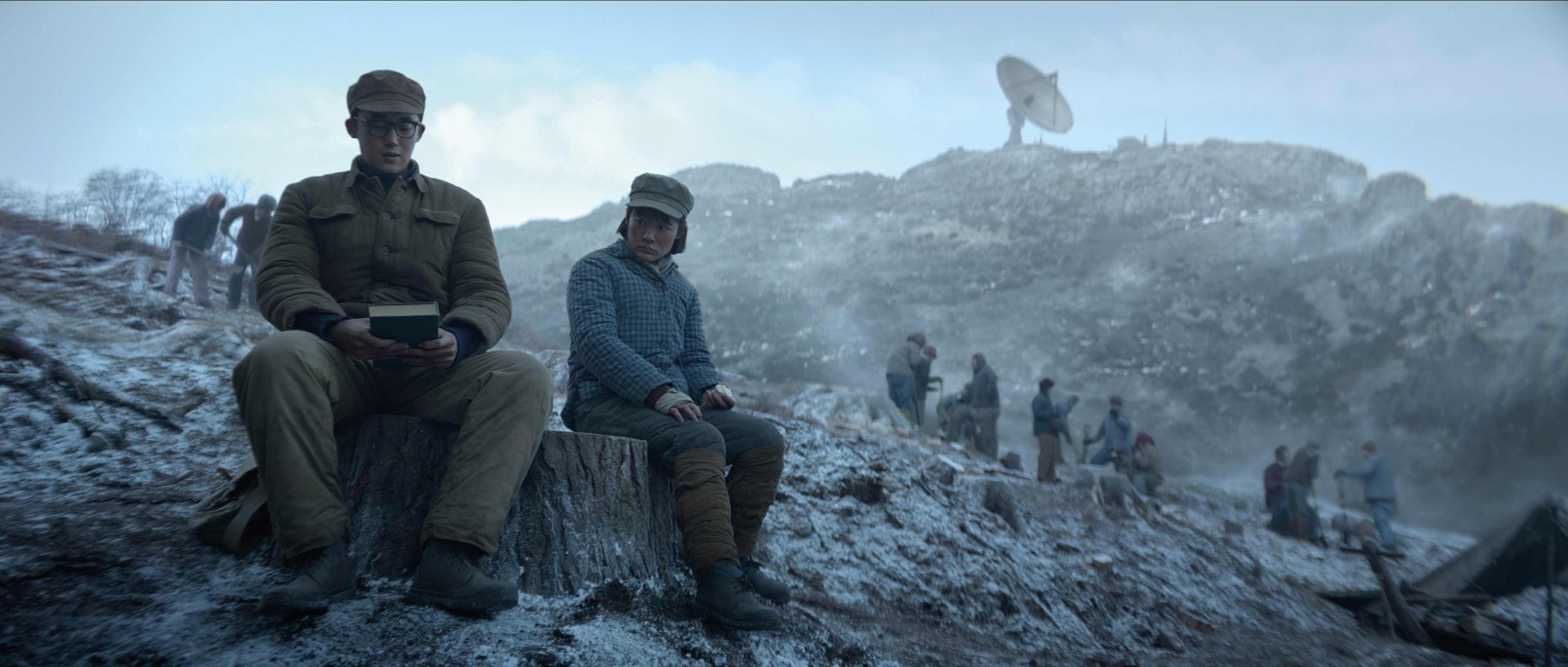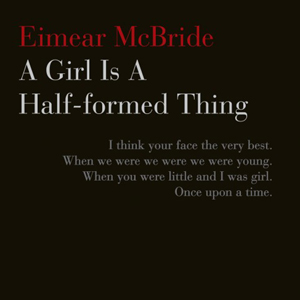
Rarely has there been a television project that looked so good on paper. 3 Body Problem, which will be released on Netflix on 21 March, is an adaptation of a critically acclaimed Chinese science fiction trilogy by Liu Cixin. Since its first appearance in English translation in 2014, the trilogy has sold over nine million copies around the world. Among its fans are Barack Obama, Mark Zuckerberg and George R. R. Martin, who recommended the first of the books on his influential blog back in 2015, describing it as “very unusual” and praising the work of translator Ken Liu.
Perhaps it was thanks to Martin that the showrunners of the Netflix series first came across the book. At the time of his recommendation, David Benioff and D. B. Weiss were several seasons deep into their work on Game of Thrones, the HBO series based on Martin’s own A Song of Ice and Fire books that dominated the prestige television landscape of the 2010s. Add to that the fact that this show boasts executive producers like Brad Pitt, Rosamund Pike and Knives Out creator Rian Johnson, and it’s easy to see why 3 Body Problem was topping lots of “most anticipated TV of 2024” lists at the start of the year.
Look a little closer, though, and the cracks begin to show. Benioff and Weiss did helm one of the big TV hits of the last decade, but they also steered Game of Thrones from being appointment viewing in 2011 to a frustrating, lacklustre 2019 finale that resulted in 1.8 million people signing an online petition to remake the show’s last series “with competent writers”. One critic, including it on a list of worst TV endings of all time, wrote that the duo had “turned a series once considered the greatest of all time into a hollow mess”. The follow-up project to a such a hit-turned-flop needed to be first-rate, but when Benioff and Weiss announced in 2017 that they were working on an “alternate history” series for HBO called Confederate, in which the American Civil War ended in stalemate and slavery continued, it prompted widespread fury and condemnation that such “slavery fan fiction” should get screen time. In 2019, the pair left HBO for Netflix, with Confederate humiliatingly cancelled before it was even filmed. The pressure is on, then, for 3 Body Problem, reportedly worth $250 million.
The source material is rich, complex and nuanced. A time-hopping trilogy that reaches back to China’s Cultural Revolution in the 1960s and then forward many centuries into an imagined future, Liu Cixin’s novels are tightly plotted pieces that have deftly explained scientific concepts woven through them. Liu’s overarching subject is humanity’s possible contact with extraterrestrial life. The English version of the first book opens with a compelling sequence in which Ye Wenjie, an astrophysicist, witnesses her father being beaten to death by Mao’s Red Guards after he has been branded a traitor. She is sent to prison, and while there is forcibly recruited into a scientific taskforce that is trying to use radio waves to search for life elsewhere in the universe. Certain there can be no positive future for a human society that would kill her family and destroy her hoped-for life of science, Ye responds to contact from an alien civilisation and so causes an invasion force to be dispatched for Earth. We then travel to the present day, where scientists are racing to discover the meaning of a mysterious virtual-reality-style game that may or may not be part of the alien invasion. The rest of the series deals with the fallout from Ye’s decision, skipping forward in time to show different stages in humanity’s preparations for the coming alien colonisers.
Ye’s story is partially based on events from the author’s own life, which perhaps explains why some of the scenes pack such an emotional punch. When Liu was a small child his parents, who worked in a coal mine, split up their family and sent him to live with relatives hundreds of miles away to keep him safe from the armed patrols enforcing the Cultural Revolution in their home city.
When the trilogy was first serialised in the influential Chinese magazine Science Fiction World in 2006, the section set during this time was buried in the middle of the story as a flashback. His Chinese publisher feared attracting negative attention from government censors by putting such openly political material so prominently at the start of the book, and persuaded him to hide it deeper in the text. When the Chinese-American writer and translator Ken Liu proposed that the flashback be moved to the beginning for the English version, Liu Cixin was delighted. In a 2019 interview, he told the New York Times that he recommends Chinese readers who speak English to read the translation, rather than the original version. “The protagonist needs to have total despair in humanity,” he said, emphasising the centrality of the Cultural Revolution to his trilogy.
Political controversy continues to surround the book series, though, almost two decades after it was first published. In a move that seemed to many commentators to be blatantly political, in January 2023 a Chinese television adaptation was released – beating Benioff and Weiss’s big budget Netflix offering to the screen by over a year. The 30-episode series was titled Three-Body and is available to watch with English subtitles on Amazon Prime. It follows the book very faithfully, to the extent that some of the scientific material that characters describe is reproduced in the dialogue almost identically. The computer-generated sequences are not quite up to the standard that Hollywood has trained us to expect, but it is overall an able take on the source material that also makes some prudent changes (such as the weaving of the “present day” scenes into the preparations for the Beijing Olympics).
More concerningly than a bit of China–US one-upmanship, in 2020 a group of US senators wrote a letter to Netflix raising concerns about their involvement with Liu Cixin – who is also a consulting producer on 3 Body Problem – due to his apparent use of a Chinese government talking point when asked about the internment of Uighur people in Xinjiang province in a 2019 interview. “Would you rather that they be hacking away at bodies at train stations and schools in terrorist attacks? If anything, the government is helping their economy and trying to lift them out of poverty,” he told Jiayang Fan of the New Yorker, a statement that she noted closely followed the line promoted by government-controlled media in China. The senators’ letter criticised Netflix’s decision to work with Liu as a “normalisation” of these views.
The adaptation will be released into the febrile atmosphere of US–China relations, and no doubt greater political scrutiny will be given to this unusual pop cultural partnership. The fact that Benioff and Weiss’s take on Liu’s story seems to remove some of its Chinese context is also worthy of note. Whereas all the protagonists of the original trilogy are Chinese, and Chinese history is key to the plot, the Netflix version has British or American actors, many of them white, in major roles – continuing America’s long history of “remaking” stories from other countries in its own image.
Still, the platform and reach that Netflix gives this tale of scientific discovery and political division are unrivalled. The universe, in Liu’s telling, is a complex place full of both wonder and despair. Whether 3 Body Problem proves to be a TV hit for the ages or just another mediocre streaming series, it will have a cultural impact, and the ideas at the heart of the story are worth taking seriously.
This article is from New Humanist's spring 2024 issue. Subscribe now.

